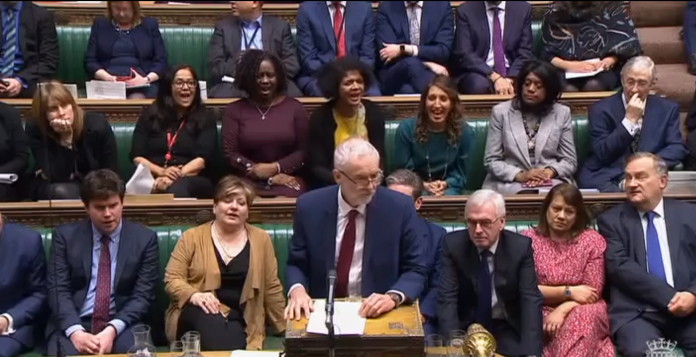Several of my friends disagree with me about what I’m going to say here, but here goes. This is one stat from the 2019 election: “58 seats switched to the Conservatives in the 2019 General Election. Of these constituencies, 55 voted Leave in the 2016 EU referendum.’ (taken from the House of Commons library).
To my mind, this tells me that the main reason why Labour was defeated was over Brexit. Please note, this post is NOT about the rights and wrongs of Brexit; it’s NOT about what is left or right or what Corbyn should or should not have done or what Labour should or should not have done. If you want to comment about that, that’s your choice, but it’s not what I’m talking about here!
My reason for posting that stat is that it gives rise to a sobering thought for anyone who was concerned about how Labour was handling the ‘antisemitism issue’. And it’s a reminder that for all the press furore about this issue, the major shift in votes in that election seems (from that stat) to be about Brexit.
People will remember, of course, that there was a referendum. (This post is NOT about the whys and wherefores of that referendum!). There was a result. Whether you agreed or disagreed with the result (or anything to do with the referendum), it happened. For people who thought they had won, there was then the disconcerting picture coming out of Westminster that MPs were trying to fudge the result. (This post is not about whether they were or were not fudging the result!).
Enter into the picture, the slogan ‘Get Brexit Done!’ At that particular moment, at that particular time, for people who had voted for Brexit, in those constituencies, this was a powerful slogan. (This post is not about whether you agree or disagree with it!)
In a way, I will argue that it was strong enough and direct enough to sweep aside all other considerations – at that moment in that place, in those constituencies. In effect, I’m arguing that for Brexit voters that election was a second referendum. In those former Labour seats, if you had voted for Brexit, you could say with your vote, ‘And I’m voting for it again and for it to happen.’ And in terms of their vote getting the result they wanted, they were right. They got what they voted for: Brexit.
My argument now, therefore, is that this was, of course, the actual reason why Corbyn was defeated. In a sense, all the other shenanigans had failed – mostly on account of the support he had away from the Parliamentary Labour Party – i.e., in the membership and in meetings and constituencies. But actually, whether it had failed or succeeded is beside the point (I think). The key blow was those seats (in the stat) changing hands. Why did they change hands? Brexit and ‘Get Brexit done’.

(As I say, if people want to argue about Brexit and any of the issues around it, that’s fine, but it really is not what this post is about.). From my point of view, this post is about what actually happened, on the ground, in voting terms, in those constituencies (i.e., the ones that changed hands and affected the outcome in a General Election, and resulted in ‘what defeated Corbyn?’) So this isn’t about whatever sense of injustice that people who comment here might feel about the ‘antisemitism issue’ or ‘why Corbyn had to go’ theories on the basis of class, distribution of wealth, social change, etc. It’s about the coincidence of events which meant that first there was the referendum, then there was the period which could be perceived in Brexit-voting constituencies as ‘fudging’ the result, and then along came a general election. If that all seems too much like ‘coincidence’ (as I’ve put it), then think about Labour’s ‘huge’ victory in the last election, which depended very largely on a) the collapse of the Tory vote and b) the transfer of votes from the Tories to the LibDems and others and c) the decline in the SNP. Coincidences and chances in time and place can occur, particularly with First Past the Post electoral systems, which are often decided by swings in about 50 or 60 constituencies!
Michael Rosen







